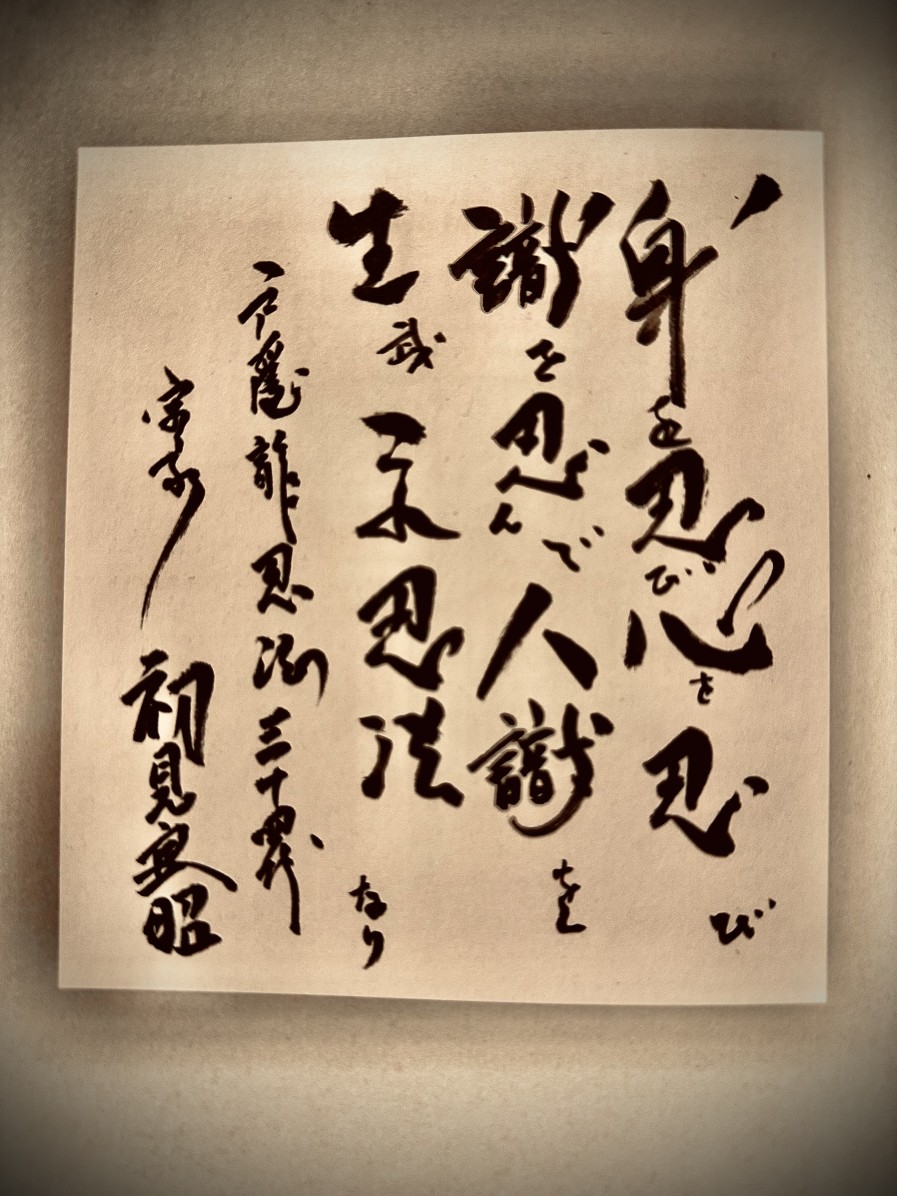
The three expressions, "身を忍ぶ" (mi o shinobu), "心を忍ぶ" (kokoro o shinobu), and "識を忍ぶ" (shiki o shinobu), share the shinobu root "忍ぶ," implying an idea of enduring, bearing, persevering, or accepting.
"身を忍ぶ": To tolerate or accept physically.
"心を忍ぶ": To tolerate or accept emotionally.
"識を忍ぶ": To tolerate or accept intellectually or spiritually.
These expressions may suggest the idea of cultivating resilience, patience, perseverance, or acceptance in different aspects of the human experience.
The principles "身を忍ぶ" (mi o shinobu), "心を忍ぶ" (kokoro o shinobu), and "識を忍ぶ" (shiki o shinobu) are tenets associated with the philosophy and practices of ninjas, ancient practitioners of martial arts and espionage in Japan. They could be explained briefly as follows:
身を忍ぶ (Endure the body): Involves controlling the body and the ability to physically withstand various conditions. Ninjas needed to be agile, flexible, and capable of enduring discomfort during missions or training.
心を忍ぶ (Endure the heart/mind): Refers to emotional control and the ability to remain calm in challenging situations. Ninjas had to control their emotions to make rational decisions and face challenges with serenity.
識を忍ぶ (Endure consciousness/intellect): Involves developing wisdom and the ability to deeply understand situations. Ninjas needed to cultivate intelligence and perception to plan strategies and overcome obstacles.
These principles were not only crucial in the physical and tactical realm but also reflected the importance of self-discipline, resilience, and wisdom in a ninja's life.



